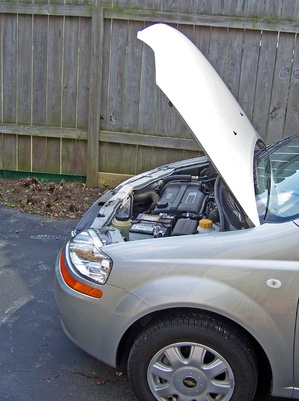
An automotive alternator is responsible for providing the vehicle with electrical power while the engine is running as well as charging the battery. A grinding noise coming from the alternator is likely a sign that the alternator is about to fail.
As alternators age, the bearings that the pulley and the internal rotor turns on can become worn. As the bearings wear, the pulley begins to have slack that allows it to move side to side while spinning, creating the grinding noise. In addition to the noise, the alternator's electrical output will begin to decline.
The simplest way to test the alternator is to drive the nearest auto parts store. Most auto parts stores will test the alternator for free and can test it without it removing it from the car. If this option is not available, the drive belt can be removed and the alternator pulley turned by hand to listen for the noise and feel for play.
Alternators can be expensive, but they are relatively easy to replace, which will reduce labor costs. Car owners with basic mechanical ability should be able to change their own alternators. Part stores sell both new and re-manufactured alternators for most cars, with the re-manufactured units being considerably less expensive.